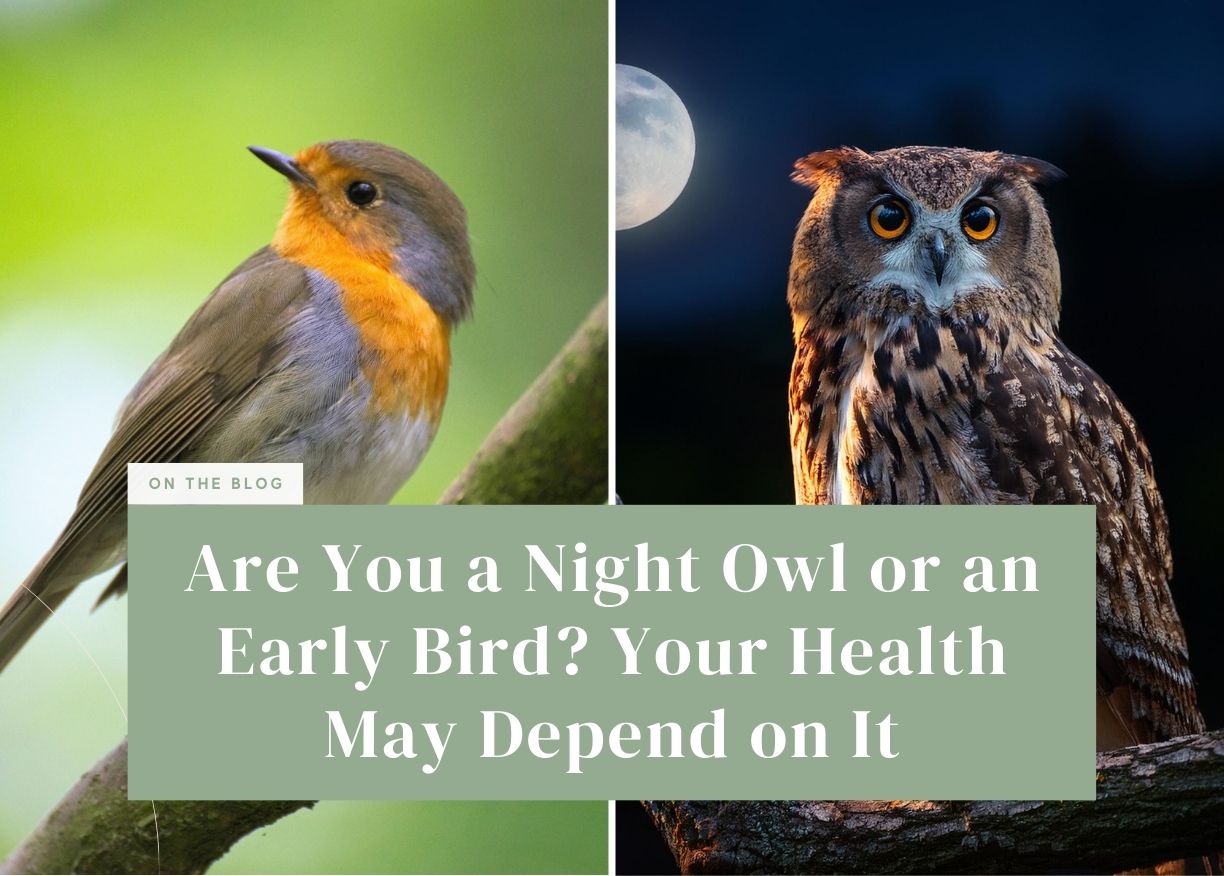Are You a Night Owl or an Early Bird? Your Health May Depend on It
Some people spring out of bed at sunrise—bright-eyed, ready to take on the day.
Others hit snooze three times, come alive at midnight, and find their focus long after most have gone to sleep.
We call them early birds and night owls.
And while both are natural tendencies, research shows: the one you are may be affecting your health more than you realize.
The Science of Chronotypes
Your body has a built-in preference for when it wants to sleep and wake. Scientists call it a chronotype.
Early birds feel most alert in the morning. Night owls peak later in the day. Neither is “wrong”—but living out of sync with your chronotype can cause problems.
The Early Bird Advantage

Early risers tend to align better with society’s schedule—work, school, daylight. Studies show they often report:
-
Better mood regulation
-
Lower risk of depression
-
Healthier eating habits
But there’s a catch: if they go to bed too late, early birds may get less sleep overall, leaving them groggy and sleep deprived.
The Night Owl Struggle

Night owls often thrive creatively in the evening. But living in a world built for early risers can hurt them. Research links night owl schedules to:
-
Increased risk of obesity and diabetes
-
Higher rates of depression and anxiety
-
More difficulty maintaining consistent sleep routines
It’s not that being a night owl is unhealthy—it’s that society rarely accommodates it.
Can You Shift Your Chronotype?

You can’t completely change your biology, but you can adjust your habits:
-
Keep a consistent bedtime and wake time (even on weekends).
-
Limit evening screen light, which tricks the brain into “daytime mode.”
-
Expose yourself to bright morning light to reset your clock.
How Your Sleep Setup Helps
Whatever your chronotype, quality sleep matters more than the exact hour you fall asleep.
🌿 Honey Hybrid Organic Mattress keeps your spine aligned and your body cool, so you wake without aches no matter your schedule.
🌿 Plant-Based Pillow supports natural posture, reducing stiffness for both night owls and early birds.
🌿 Bamboo Sheets regulate temperature so late sleepers don’t overheat and early risers stay cozy.
Consistency plus the right environment is the real formula for better health.
Final Thoughts
Whether you thrive at dawn or come alive at midnight, your body is telling you something important: respect your rhythm.
But remember—health isn’t just about when you sleep, it’s about how well you sleep.
Because at the end of the day (or night), what matters most isn’t being an early bird or a night owl—
It’s waking up restored.





